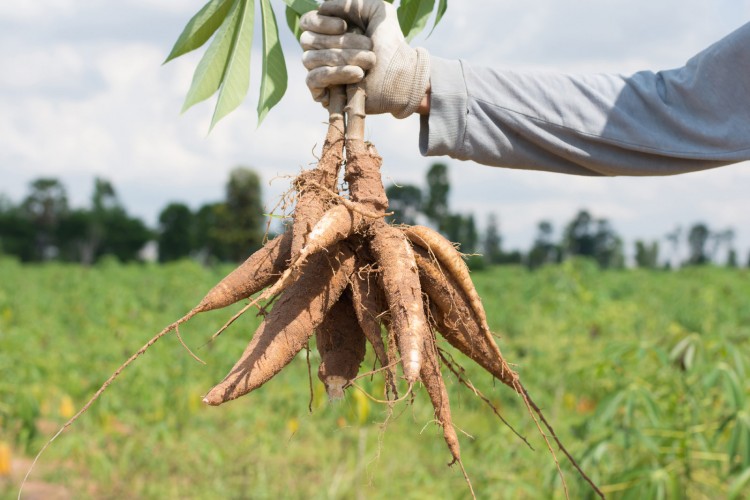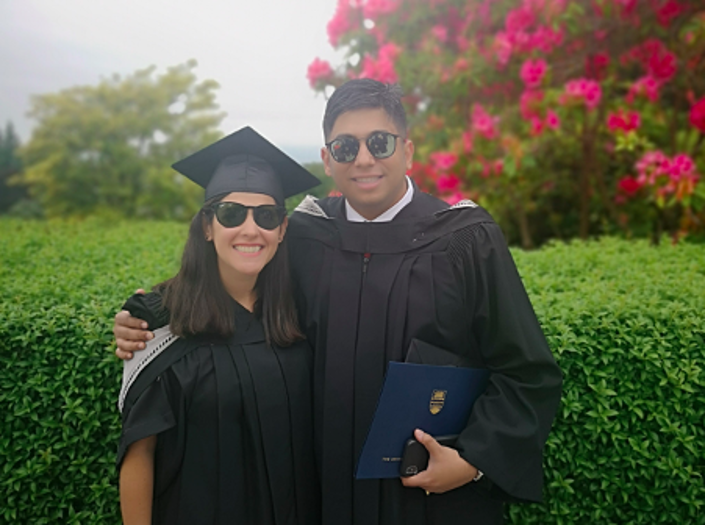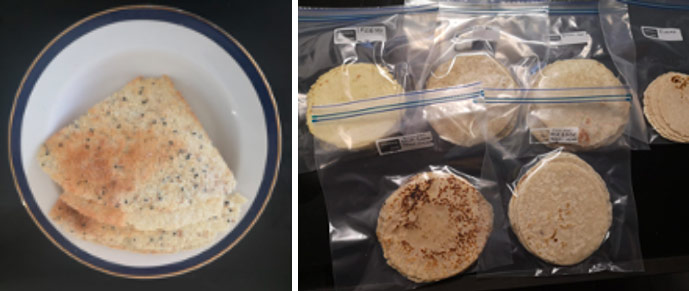
Introducing the next superfood to local consumers

Inspired during their Master of Business Administration (MBA) program at UBC Sauder, Nanette Anzola and Rahil Fernandes aim to revolutionize the food industry with CassaV Foods – a startup promoting cassava as a nutritious and gluten-free alternative to Vancouver’s health-conscious consumers.
Anzola was born and raised in Venezuela and Fernandes in India and while their paths wouldn’t cross until 2017, they both grew up eating traditional foods made from cassava. A nutritious plant root, cassava has a plethora of health benefits: it’s high in fibre and rich in minerals and vitamins. In addition, because it has anti-inflammatory properties that aid the digestive process, it’s beneficial for patients with celiac disease and other gastrointestinal concerns.
Before moving to Canada, Anzola had a business idea to introduce cassava-based foods globally and help consumers develop a taste for the superfood. Her aspiration to bring cassava products to Vancouver resurfaced through a course she took as part of her MBA called Impact Investing.
Taught by Dr. James Tansey, Associate Professor and Executive Director of the Centre for Social Innovation & Impact Investing, Anzola and her classmates were challenged to develop a project based on raw food inputs that could be used to determine the impact feasibility of agricultural foods.
The class made a big impression, so much so that Anzola began talking to Fernandes about her business idea. Considering that multiple members in his family are gluten-sensitive, the merits of cassava strongly resonated with him. He poses an interesting question: “Everybody knows about kale being a superfood, but what about cassava?”
An MBA friendship becomes a business partnership
With Anzola’s prior business experience as a co-founder of BarrelWise Technologies and Fernandes’ expertise in sales and business development, the entrepreneurially-minded students were natural business partners.
“Nanette and I met when I ran into her carrying several heavy bags of groceries in the summer of 2017,” recalls Fernandes. “Upon recognizing that she was my classmate, I offered to help carry her groceries home and that’s when we found out that she lived three doors down from me. We’ve been best friends ever since. Our business skills are different but complementary. For example, Nanette is an eternal optimist and I plan for the worst-case scenario.”
Two years after completing their MBA degrees, Anzola and Fernandes, along with a third co-founder in Venezuela, launched CassaV Foods.
A dual focus on profitability and social impact
Drawing upon the principles of her Impact Investing course, Anzola is working on a plan that would see CassaV Foods support Venezuela’s refugee communities through the company’s supply chain. She would like to source her raw product from Venezuela or neighbouring Colombia and form CassaV communities to grow the plant, develop parts of the product, and then export to North American markets.
“I want to partner with existing farmers in these countries,” she says. “I would like to help on the manufacturing side so they can keep part of the profit and also have a lot more employment for those refugee communities. That’s where we hope to have real social impact.”
Applying business skills and a growth mindset
Currently, CassaV Foods is testing two supply chains: first, importing finished cassava food products from South America and testing them in local markets, and second, developing their own cassava food items in a commercial kitchen and completing the entire manufacturing process locally.
Through this comparison, Anzola says CassaV Foods was able to map what both models look like. For this financial modelling and analysis, she and Fernandes hired UBC Sauder MBA student Saurabh Kharana, who joined the team for four months through the school’s Mitacs Business Strategy Internship program.
Due to COVID-19, the importation of sample products that CassaV Foods was expecting from South America was significantly delayed. Given this challenge, the partners were forced to re-evaluate the trajectory of their start-up and contemplate whether they should even continue building their venture.
“One of the most challenging things about working in a start-up is that things can change overnight,” notes Fernandes. “The MBA does not train you for what to do in a pandemic, but what our MBA did teach us was resilience and grit. Taking the UBC Sauder MBA program was the best decision of my life.”
Though set back by a few months, Anzola and Fernandes are planning on approaching local farmers markets this summer, where they will introduce consumers to CassaV Foods bread and soft tortillas. In doing so, they hope to establish a strong product-to-market fit and a plan for future growth.
“Often there is a compromise with food,” says Anzola. “You either eat something healthy but it doesn’t taste great and you feel like you’re on a diet, or you eat something super tasty but you don’t feel so good afterward,” she says. “Cassava-based foods allow people to have both. You can have something that’s tasty and good for you at the same time.”
Ultimately, the two UBC Sauder MBA alums share a common dream that when people think of cassava, they will think of CassaV Foods.

